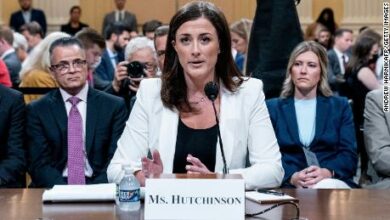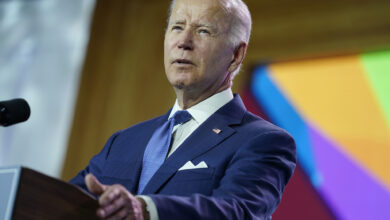Egyptian church leaders have said they will reject a proposed amendment to the constituation article, inherited from the 1971 Egyptian Constitution, that says the principles of Sharia are the main source of legislation.
Salafis have called for amending the provision to “Sharia is the main source of legislation.”
But Christian religious leaders said the article should stay the way it is.
Article II of 1971 Constitution, which was copied into the current Constitutional Declaration, reads "Islam is the religion of the state. Arabic is its official language, and principles of Islamic jurisprudence (Sharia) are the main source of legislation." A 1979 amendment replaced "a main source" with "the main source."
Church leaders said the provision should have an additional part that states “non-Muslims shall resort to their rituals.”
Some legal experts argue that deleting the word "principles“ means Sharia will play a bigger role in drafting legislation.
Christians, who make up around 10 percent of the nation’s 82 million people, fear that having Sharia rather than its principles as the main source of legislation could mean restrictions on their religious freedoms.
Secretary of the Holy Synod and Constituent Assembly member Edward Ghaleb told Al-Masry Al-Youm that “the rumors about the approval of the churches and Al-Azhar to amend the article, so it becomes ‘the Islamic Sharia is the main source of legislation’ are far from true.”
Ghaleb added, “We have agreed that the Al-Azhar document will be one of the sources for drafting the new constitution. The document states that the second article remains as it is, with the addition of the sentence, ‘non-Muslims shall resort to their rituals’ with regards to personal affairs.”
Ghaleb said the Al-Azhar document and former Egyptian constitutions were distributed to the assembly members to guide them in drafting the new constitution.
Andria Zaki, vice president of the Evangelical Church, called for not tampering with the second article of the constitution and "taking non-Muslims into account with regards personal affairs.”
Zaki said that “any amendment [to the article] would complicate matters even more, and we need to reach more agreements than controversy at the moment.”
He welcomed the proposal that Coptic vice president be appointed, noting “the need for everybody’s participation regardless of their affiliation.” But he demanded the choice of “a person who is widely acceptable between Copts, not choosing someone for decoration.”
Father Rafiq Grish, spokesperson for the Catholic Church, also agreed that the second article remain as is. He warned that trying to amend it “may create problems between Egyptians.”




